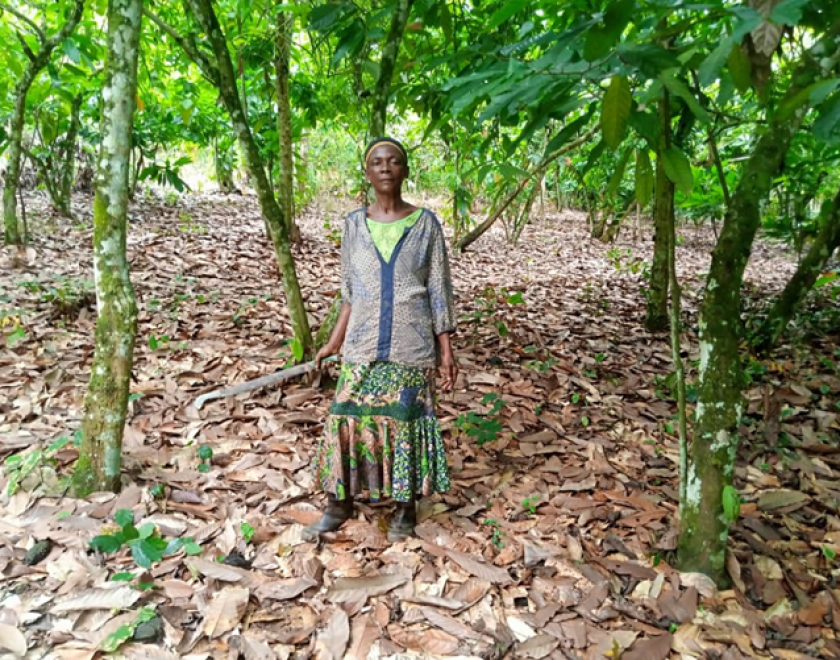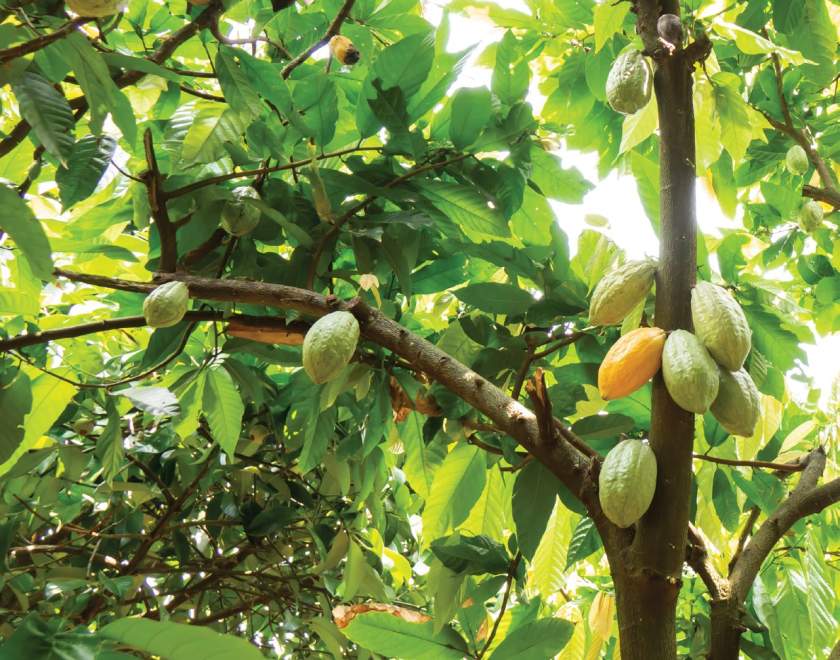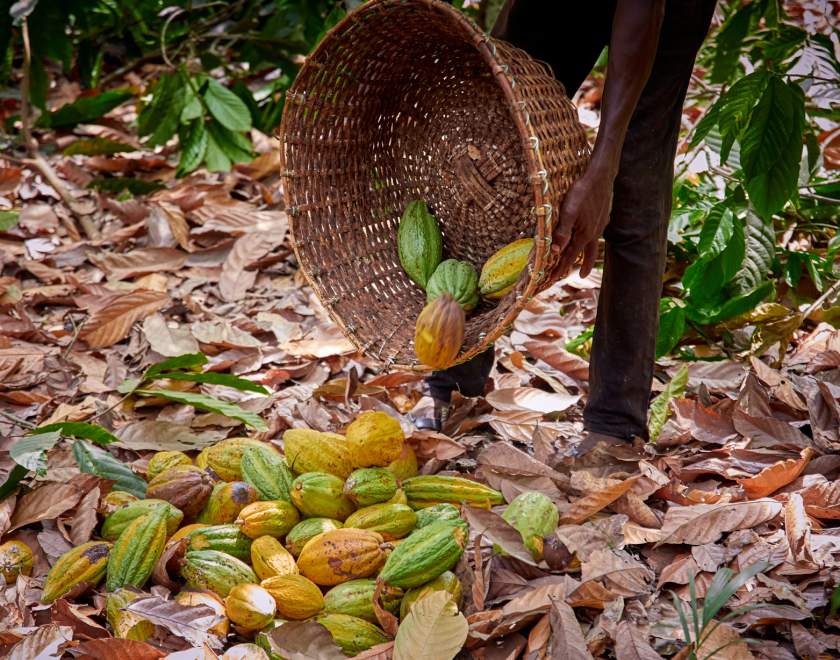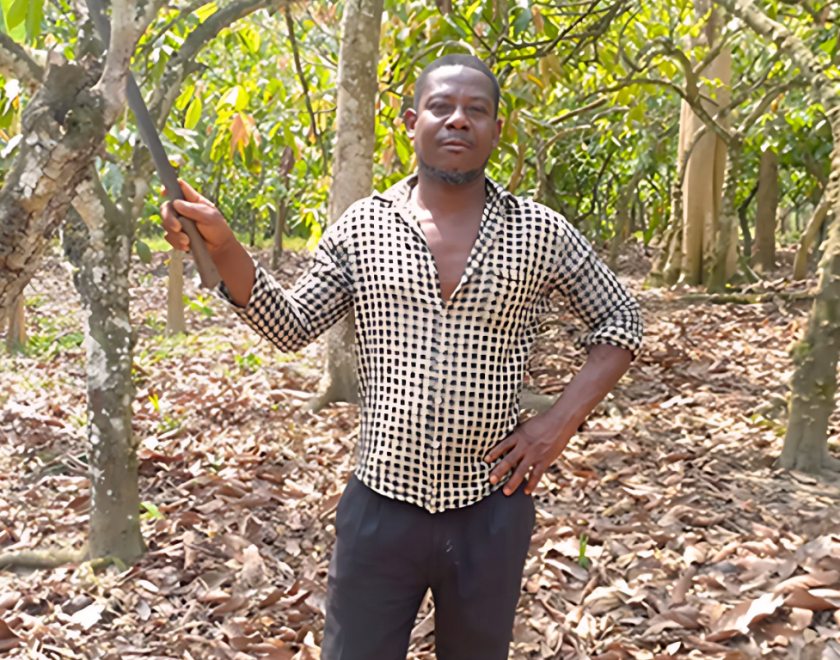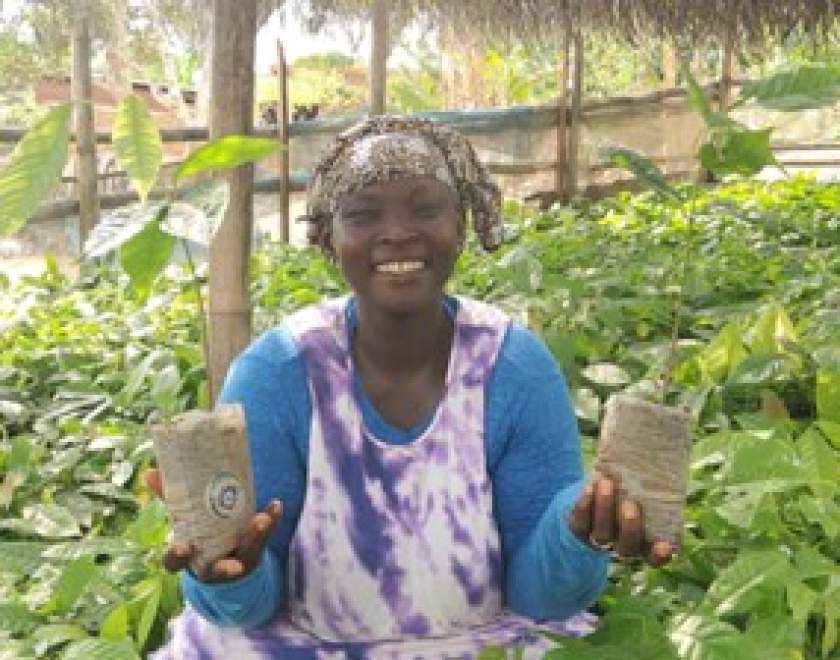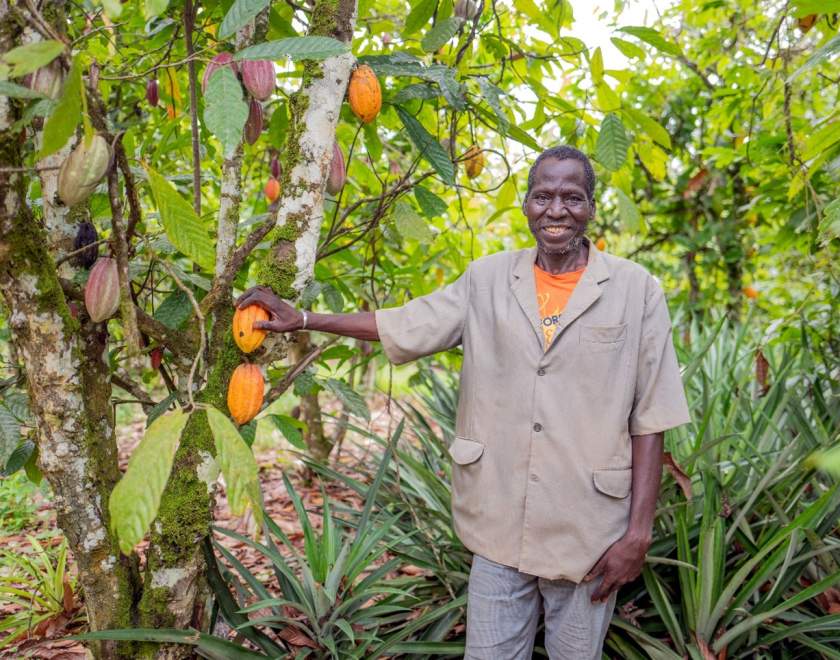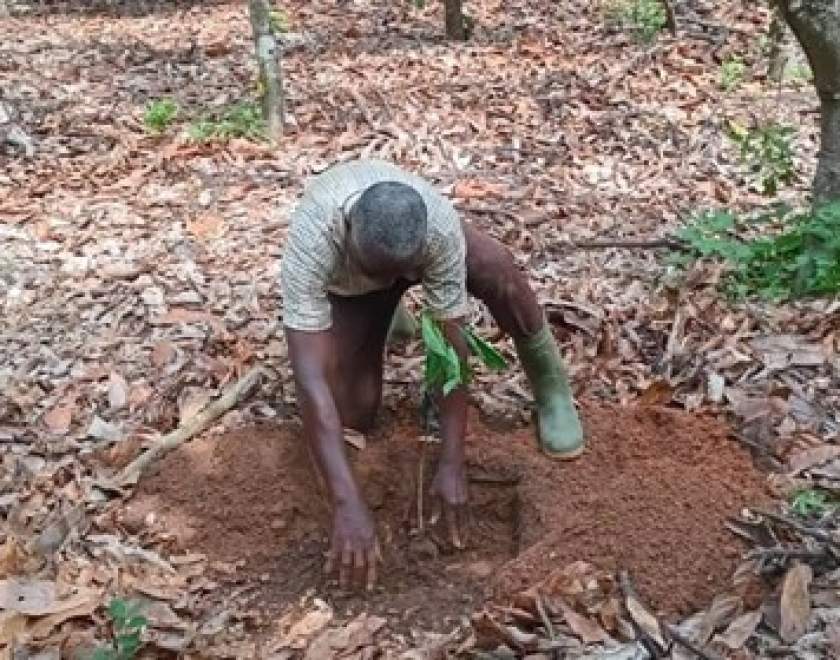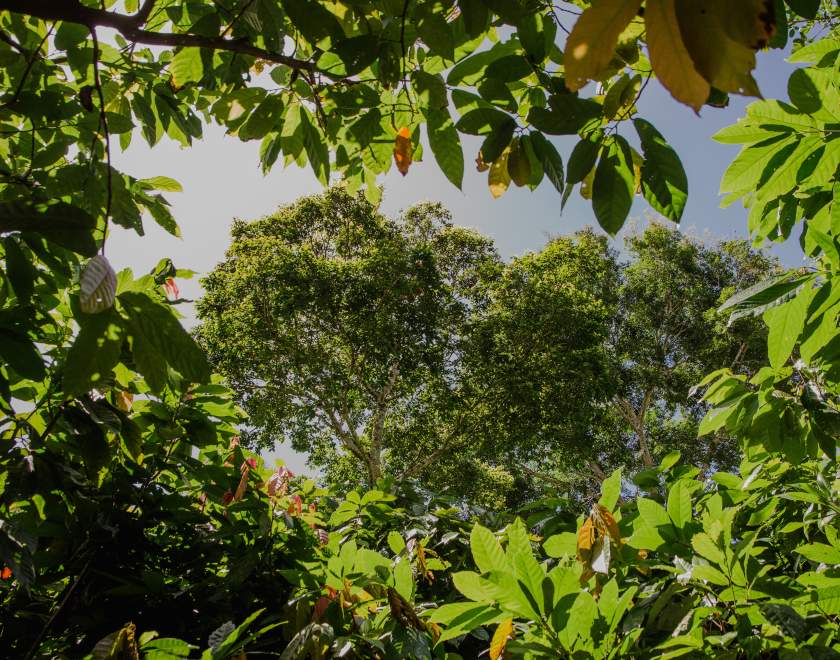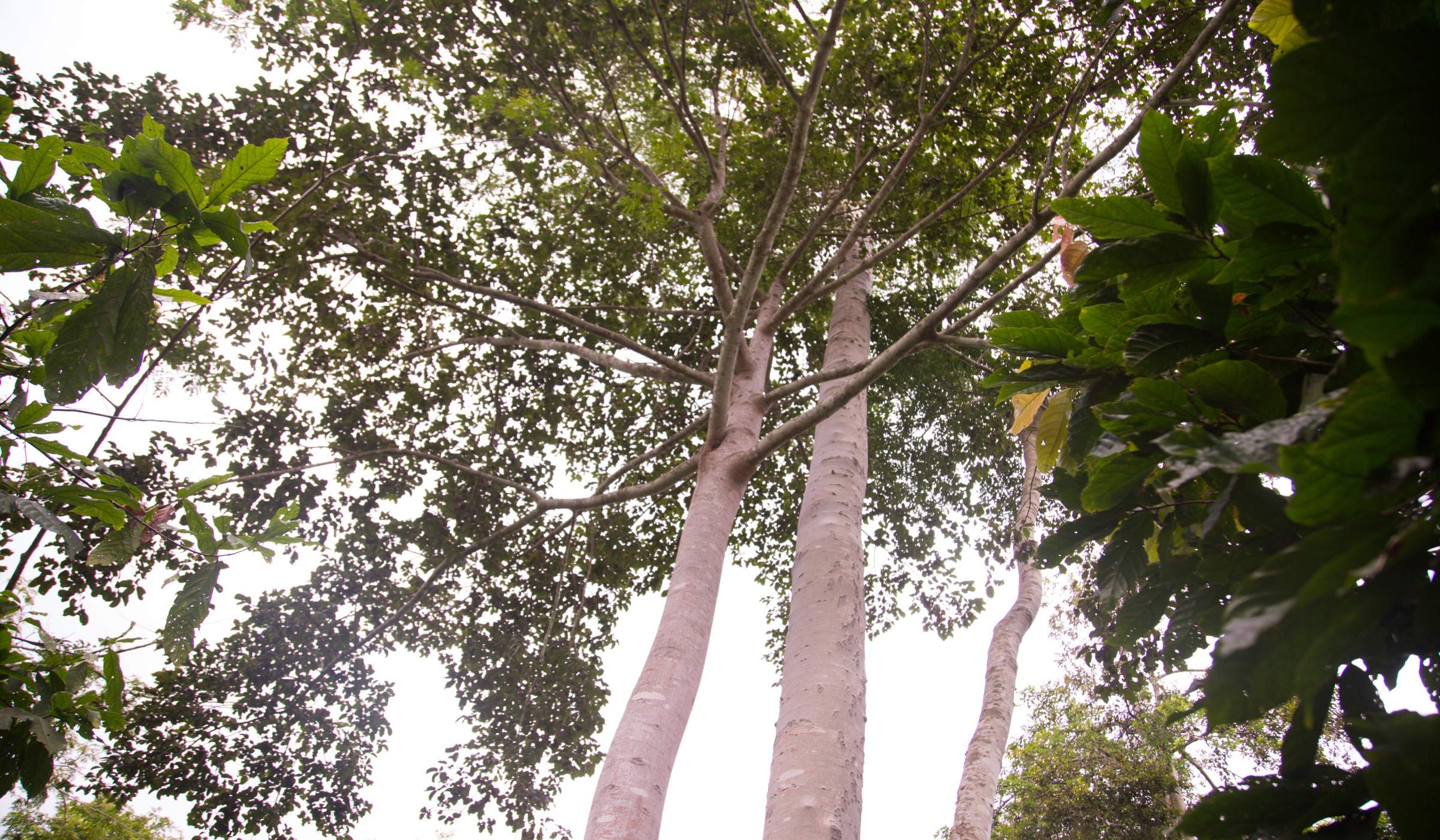
During COP28, WCF, with IDH and key government officials, proudly presented significant strides in sustainable forest conservation efforts in Côte d’Ivoire and Ghana.
[Dubai, December 3-4, 2023] – During the annual COP28 climate conference in Dubai, the World Cocoa Foundation (WCF), in collaboration with IDH and key government officials, proudly presented significant strides in sustainable forest conservation efforts in Côte d’Ivoire and Ghana. The events, held on December 3 and 4, respectively, highlighted the collective achievements of the Cocoa & Forests Initiative (CFI) across Ivorian and Ghanaian landscapes.
Ghanaian landscape solutions to combat deforestation
On December 3, the WCF and IDH, alongside the Ghanaian Minister for Lands and Natural Resources, unveiled the groundbreaking efforts of CFI in fostering sustainable forest conservation partnerships in Ghana’s Asunafo-Asutifi area. The public-private partnership in Ghana involves designing and implementing landscape-wide solutions to environmental challenges, focusing on combating deforestation due to logging and agricultural expansion. In this first phase of the CFI Landscape Programme, cocoa and chocolate companies are playing a leading role in funding and launching these projects, which go beyond their direct supply chains, to investing in the production areas around them.
Ivorian deforestation prevention progress unveiled
On December 4, the WCF, IDH, and the Ivoirian Minister of Water and Forests showcased the progress and outlined the next phase of the Cocoa & Forests Initiative in the fight against deforestation in Ivory Coast. Updates on the Ivoirian program emphasized collaborative efforts in forest conservation, land restoration, and community support within the landscapes of Yapo-Abbé and Bossématié. Building on the success of the earlier phases, CFI is incorporating landscape approaches into its strategy, focusing amongst others on the preservation and rehabilitation of the Classified Forest of Yapo-Abbé and Natural Reserve of Bossématié. CFI participating companies and donors are committing to zero deforestation and promoting reforestation beyond production areas in their supply chains.
Policy environment increases need to accelerate efforts for public-private collaboration
The CFI landscape approach aligns seamlessly with national policies such as the Ivorian national forest policy and the Ghana Cocoa Forest REDD+ Programme (GCFRP), aiming to create a deforestation-free supply chain over a three-year project period. The Asunafo-Asutifi landscape management plan, a priority Hotspot Intervention Area in Ghana under GCFRP, seeks to establish a collective-action platform toward a deforestation-free and climate-resilient production landscape, improving the livelihoods of cocoa farmers.
Across both nations, national traceability systems entered the piloting phase and the national guidelines for the African Regional Standard for Sustainable Cocoa have been drafted. These policy developments, combined with the EU Deforestation Regulation, are poised to bolster the voluntary commitments of CFI, driving further progress towards a shared vision of a deforestation-free cocoa industry.
Joint Vision for a Deforestation-Free Future
In both Ivory Coast and Ghana, the Cocoa & Forests Initiative invites private sector and government collaboration to elevate ambitions, aligning with global frameworks for a deforestation-free cocoa sector. Objectives include reducing deforestation, rehabilitating degraded land and forests, promoting climate-smart cocoa production through agroforestry, improving land and tree tenure, enhancing livelihoods, and strengthening governance.
Quotes from Key Figures
Samuel A. Jinapor, Minister of Lands and Natural Resources, Ghana, emphasizes, “.Under the CFI umbrella, we must increase investments in priority landscapes. And we must adopt effective monitoring and reporting systems to assess progress on the implementation of this initiative to ensure the principal objective of halting deforestation and forest degradation in the cocoa supply chain is achieved in the long term.”
Laurent Tchagba, Minister of Water and Forests, Ivory Coast, says: “Our country is extremely proud to be among the first signatories of this important initiative, to sow the seeds of a fair, sustainable cocoa sector. To achieve this, together we must follow an agricultural development path that reconciles preservation of the forest and improvement of the living conditions of producers. The promotion of sustainable cocoa farming is possible in Ivory Coast through decoupling agriculture and deforestation. We are resolutely committed to it. ”
Chris Vincent, President of the World Cocoa Foundation, states, “In the face of rising challenges, the Cocoa & Forests Initiative stands as a testament to the power of collaboration. Acknowledging the urgency, we recognize that merely acknowledging the issue is not enough. Deforestation demands not just attention, but action. Through the evolution of CFI, we have made good progress in traceability and agroforestry. Now, with this significant advance in landscape approaches, we are seeking to achieve even greater impact—conserving forests and restoring degraded lands – through collaborative investment by cocoa and chocolate companies outside their supply chains alongside government partners.”
Daan Wensing, CEO of IDH, concludes, "The Cocoa & Forests Initiative is a strong partnership that continues to facilitate public-private collaboration in a sector under high pressure. To reverse the increasing trend of deforestation in West Africa, all actors need to step up, mobilize resources and move forward in public-private partnerships. The landscape approach is one way to realize our collective ambition of restoring the forest and supporting the communities who depend on them."
Christine M. McGrath, SVP and Chief Impact & Sustainability Officer at Mondelēz International:
“As a founding company of the Cocoa & Forests Initiative (CFI), we are pleased that it brought key sector stakeholders together to create new collaborations that aim to help build more resilient landscapes in cocoa producing countries. In Ghana, we have been an active industry member of the landscapes initiative in the Asunafo Region and are collaborating to implement climate-smart cocoa production practices as well as agroforestry models. Together with our partners, we aim to create dynamic change in the landscapes where cocoa grows."
Nicolas Mounard, VP Sustainability and Farming, Barry Callebaut:
‘’Moving towards landscape approaches helps the industry shift beyond supply chain due diligence and deliver an ever stronger impact on forest conservation, in alignment with national policies. We are proud to be part of such an ambitious project that has at heart the prosperity of forests and communities that rely on them.’’
********
About the Cocoa & Forests Initiative (CFI):
Launched in 2017, the CFI is a unique public-private partnership dedicated to combating cocoa-related deforestation and degradation. Initiated by the governments of Côte d’Ivoire and Ghana, along with WCF and IDH, as well as leading cocoa and chocolate companies, the CFI has achieved significant milestones. These include a robust governance structure, policies promoting forest protection, restoration, and cocoa agroforestry, progress in national forest monitoring, traceability systems, and substantial investments at the farm level in traceability, agroforestry, reforestation, productivity, and income diversification.
About the World Cocoa Foundation (WCF):
The World Cocoa Foundation (WCF) is an international membership organisation representing the global cocoa and chocolate sectors. Its members include farmer cooperatives, cocoa processors, chocolate manufacturers, supply chain companies, and other companies worldwide.
WCF’s vision is to be a catalyst for a thriving and equitable cocoa sector that is collaborating to improve farmer income, reverse deforestation, and combat child labour. WCF’s unique position at the centre of the cocoa and chocolate sector enables it to create strategic relationships and collaborative programmes with cocoa farming communities, governments, and civil society, which deliver transformative impact and systemic reform.
About IDH
IDH seeks to transform markets through collaborative innovation, convening and investment in inclusive and sustainable solutions that enable businesses to create value for people and planet. To achieve this, IDH brings together coalitions of committed stakeholders from across global value chains towards joint visions and program agendas for sustainable trade.
IDH’s international presence extends to multiple regions and landscapes, facilitated by a network of around 400 staff including experts who are embedded in key agricultural, manufacturing, apparel and commodity value chains. In 15 years of operation, IDH has mobilized private sector investment and support to test and innovate new business models designed to create better jobs, better incomes, a better environment, and gender equity for all.
*****
Press contact:
For more information,
Mariette Verbruggen, World Cocoa Foundation, email: media@worldcocoa.org
Tshepo Sefotlhelo, IDH, email: sefotlhelo@idhtrade.org or mobile +31 65 540 9286

